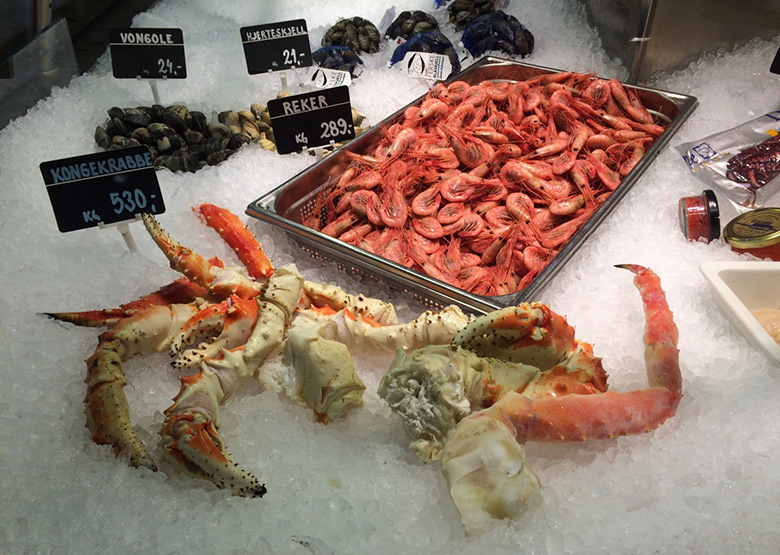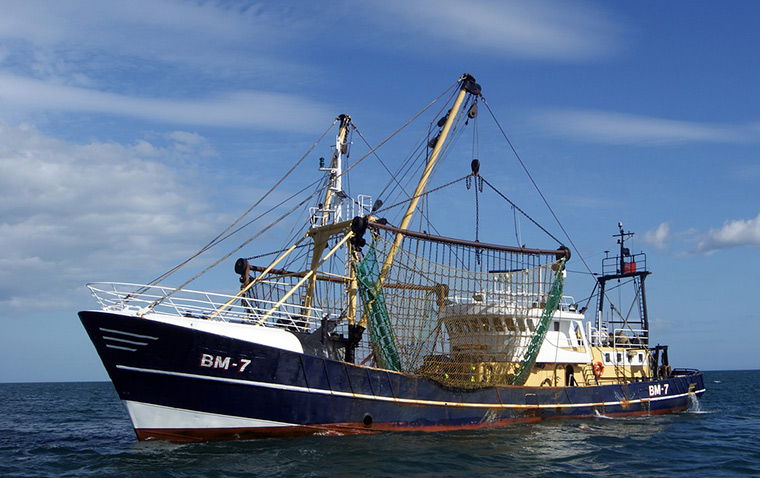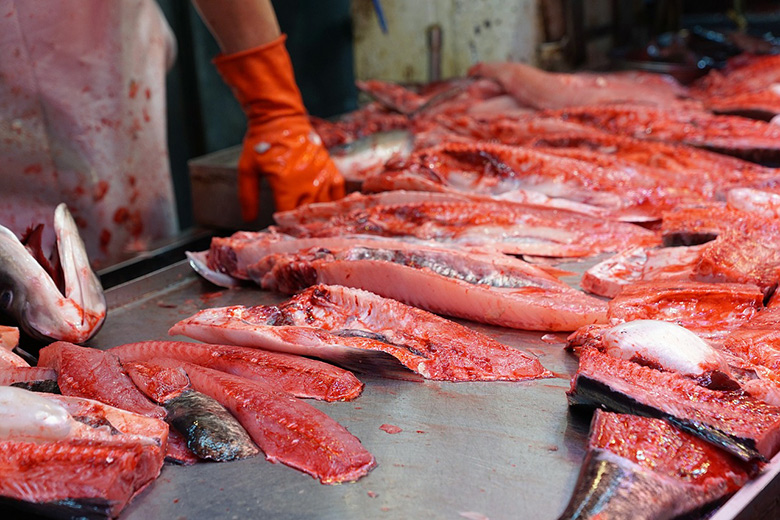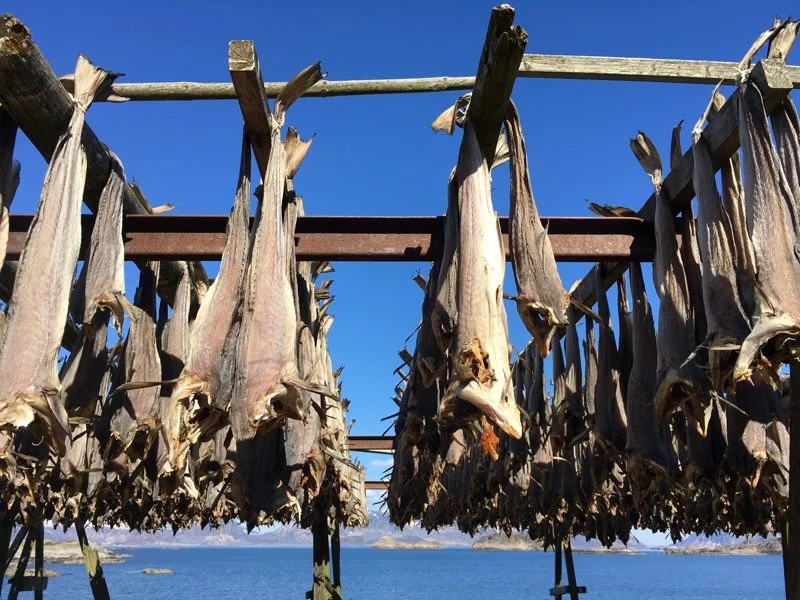
How to find work in this massively important export industry.
Seafood is the second largest export sector in Norway after oil and gas. The industry includes traditional fishing, modern fish farming and processing of all kinds of seafood at onshore facilities.
Because of increased competition, quotas, and new technology, the traditional industry has changed significantly in recent years and the number of available jobs has reduced.
Jobs are still available, but many are demand based and can be seasonal. Work can be tough, long and boring, and often involves working at unsociable hours.

Large trawlers process fish on board are more common nowadays, which is one of the factors that has led to a reduction in the number of processing plants on land. This part of the sector has seen consolidation, with bigger factories aiming to produce all year-round.
In these factories that are scattered all along the Norwegian coastline, some processing jobs are available on a permanent basis. In fish farming companies, slaughtering and packing are the most common activities.
Location of seafood jobs
Jobs are often available in more rural locations given the nature of the industry. Because of this, companies often own accommodation and rent out rooms in shared housing to their employees.
Depending on the location of the accommodation and factory, you may need your own transport. Although public transport is good in Norwegian cities, it is a lot less frequent in smaller towns especially along the coastline.

Experience and other requirements
Fluency of Norwegian isn't as essential as with most other jobs in Norway. The majority of employers prefer people who can at least understand Norwegian, but some have gone so far as to make English their working language because of the high number of foreign workers.
However, working on a boat requires Norwegian language comprehension, for health and safety reasons. Experience of working in the industry is preferred, but in practice any processing experience from factory environments will be looked upon favourably.
Working in the fishing and seafood industries involves a certain amount of risk. Machinery and equipment must be handled properly and you should receive training on this. In Norway, there is certification for various positions in the industry.

Salary expectations
Norway has no national minimum wage, but the seafood industry is one of the industries that has a collective agreement when it comes to wages.
Until April 2018, the basic hourly wage is set at NOK 173.10 for unskilled labourers and production workers, with an additional NOK 10.5 for skilled workers.
This is an increase from the 2015-2016 rate of NOK 162,85 for unskilled labourers/production workers, with an extra NOK 10 for skilled workers. These minimum wages apply for all workers, regardless of your citizenship or membership status of a trade union.
Extra pay should be expected for overtime, working weekends and/or evenings. Some companies will pay on a per kilo or per unit rate, but regulations are in place to make sure the pay in these cases is at least equal to the hourly wages above.
Shift work requires a 20% supplement for two-shift work, and 25% for three-shift work.

Where to find jobs
For permanent employment, check the “usual suspects”, principally Nav and Finn. For short-term contracts, recruitment is done well in advance and many of these jobs aren't publicly advertised.
In many cases, companies tend to use their own networks and contacts to recruit workers from other countries.
It is important to understand that your country of citizenship and immigration status will impact your chances of finding work in this sector.
It is just as easy for a Norwegian company to employ a citizen of an EU/EEA country than it is a Norwegian, so EU/EEA citizens with experience stand a good chance.
If you are from outside the EU/EEA your chances are significantly reduced, unless you have extremely relevant experience or you already have a permanent residence permit.
Need help? This website is purely an informational resource. We have no further information on working in the seafood industry, and cannot personally help you find employment.
You can either use this article as a starting point for your job-seeking research, or grab our book on How to Find a Job in Norway for more job-seeking advice.


Hi how do I find and get a job on a fishing boat in Stavanger I’ve been on the water all my life just moved here to be with my native girlfriend and need to work.
Hey, I read that you are looking for a job on a fishing boat, so I wonder if you have found or are still looking, I am also looking for the same so I am interested in your experience?
Hello. I am a permanent resident in Finland. Would it be difficult for me to get a job in Norway?
Dear sir/madam.,
My name is Daya Shankar from india.I am a seaman have one year experienced in general cargo ship .Now i am working in a fishing vessel in iran as a post of dackhand the last 9 month.Sir if you have a vacancy or if you know any vacancy suitable for me in merchant or fishing vessel please suggest me.
I am looking for a job cutting Cod tongue. Can you suggest some companies that do that in Norway. Links?
Hi my name is Ian Hlophe, I’m a south African and I’m looking to find a job on the fishing boat. I have a friend in Norway and he is currently here in south Africa with me. I have experience in business management but I’m look to start at the bottom and learn. My friend will provide me with a place to stay, how do I go about finding a job?.
Hi my name is Ian Hlophe I’m a south African, I’m looking to find a job on the fishing boat. I have a business management experience but I’m willing to start at the bottom and learn. How do I find the job.
I’m just wondering if there are any company looking for any filleters , I cut cod haddock salmon plaice and many more in Grimsby uk